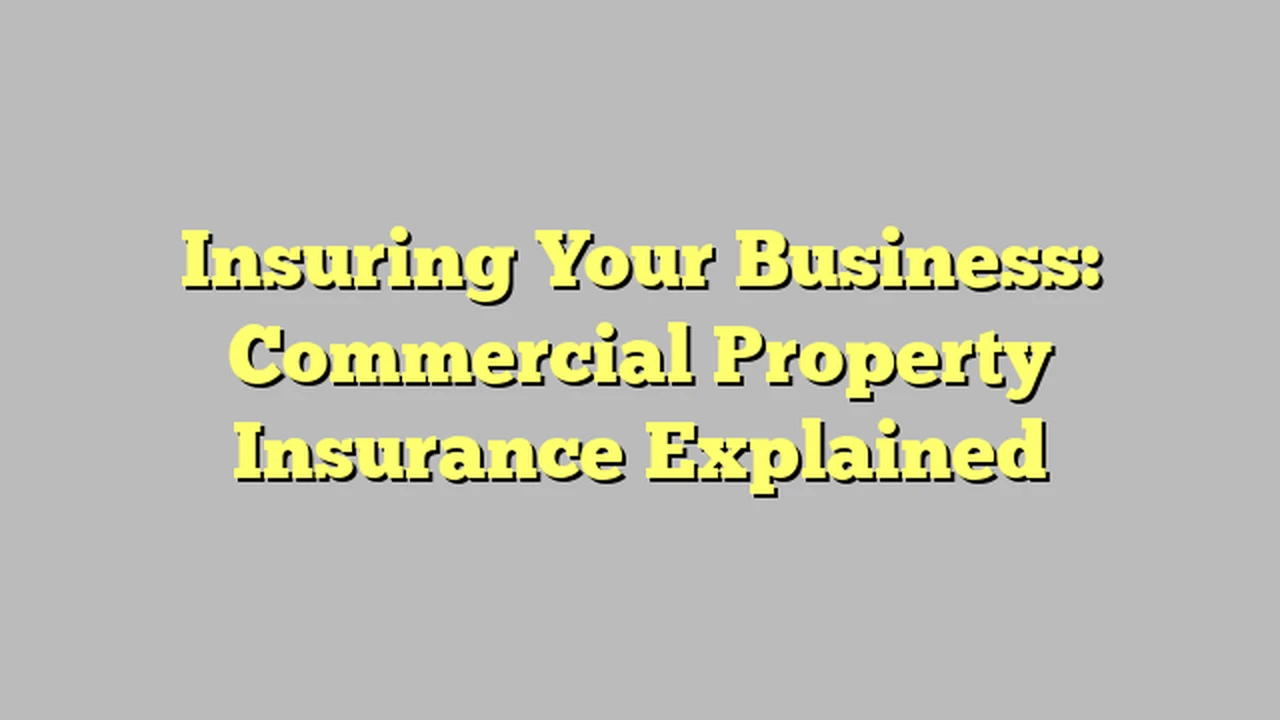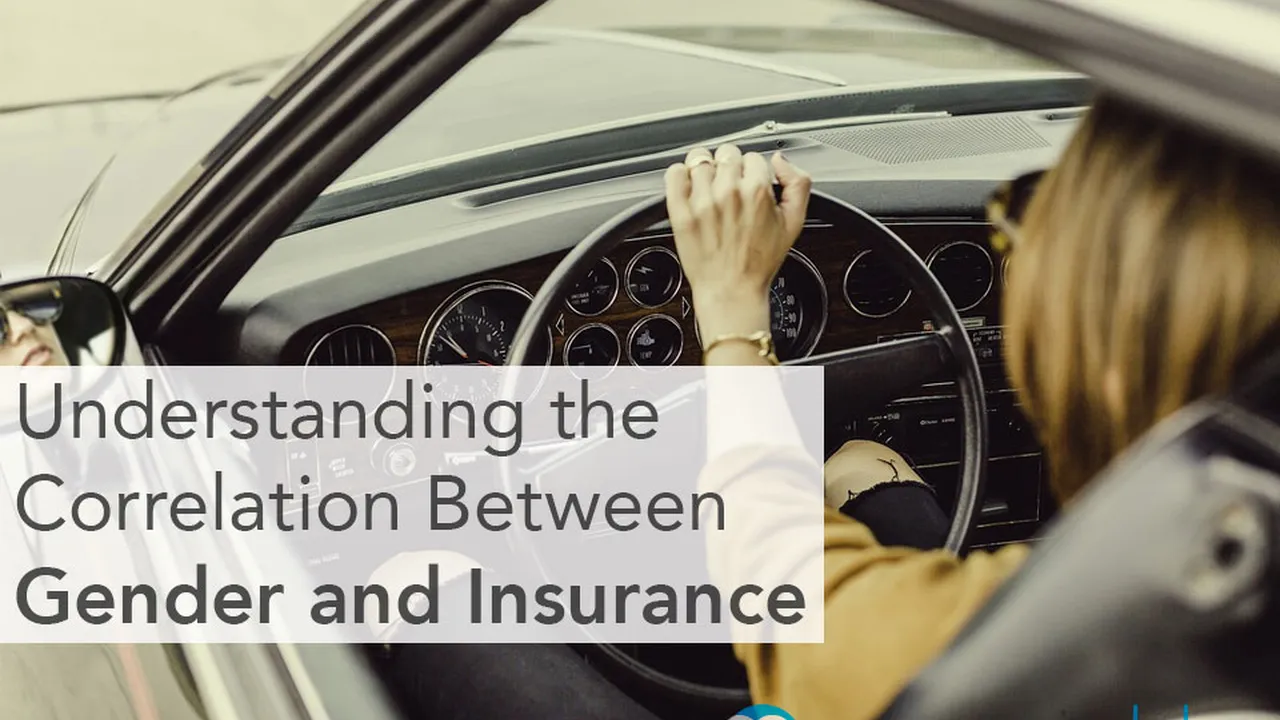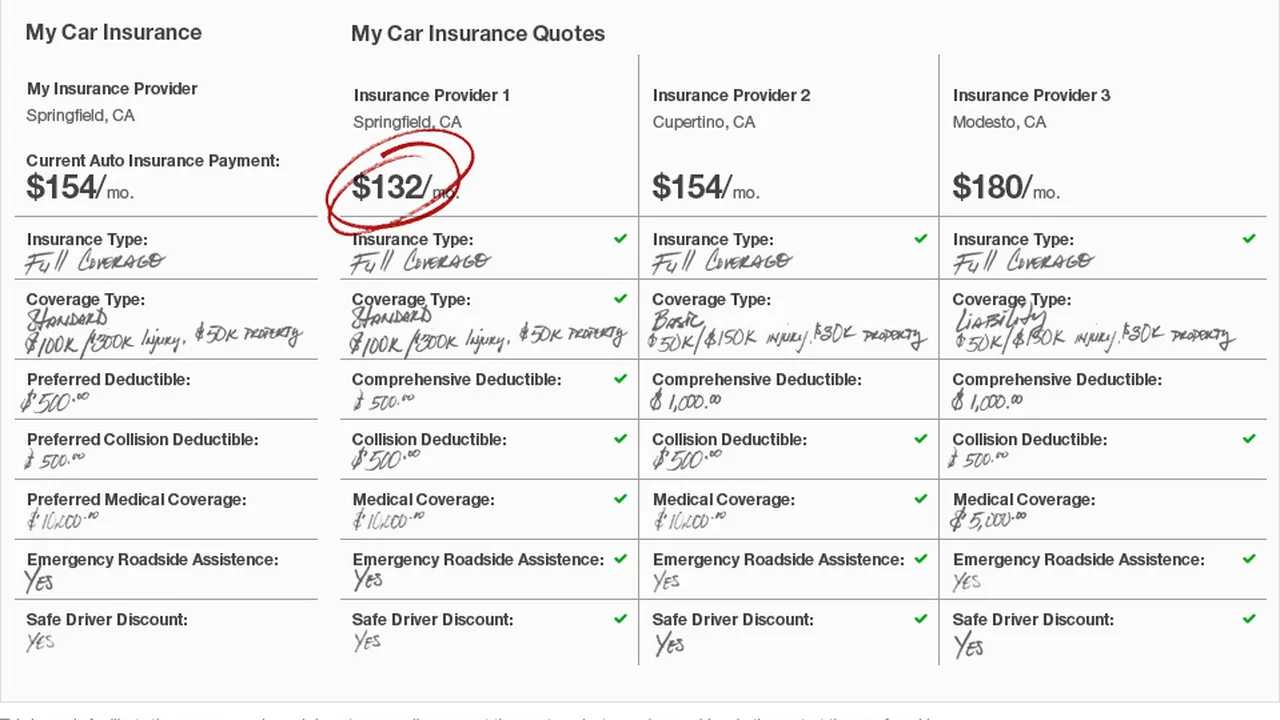Commercial Car Insurance: Insuring Your Business Vehicles

Understanding Commercial Auto Insurance Types and Business Needs
So, you're running a business and using vehicles for work? Awesome! But personal car insurance just won't cut it. You need commercial auto insurance. Think of it as business insurance for your wheels. It protects your company from financial losses if your work vehicles are involved in an accident. Let's break down why it's essential and what it covers.
First things first, why can't you just use your personal policy? Well, personal policies are designed for personal use. If you're using your car to deliver pizzas, transport clients, or haul equipment, you're engaging in business activities. This increases your risk, and personal policies often exclude coverage for business-related accidents. Using a personal policy for business purposes could lead to a claim denial – a situation you definitely want to avoid!
Commercial auto insurance covers a wide range of vehicles, from cars and trucks to vans and even specialized vehicles like food trucks or construction equipment. The key is that these vehicles are used for business purposes. The policy protects your business from financial losses related to bodily injury or property damage caused by your drivers while they are on the job. It can also cover damage to your own vehicles, depending on the coverage you choose.
Different types of commercial auto insurance policies are available, each tailored to specific business needs. Here are some common types:
- Commercial Auto Liability Insurance: This is the most basic type of coverage and is often legally required. It covers bodily injury and property damage you cause to others in an accident. Think of it as protecting you from lawsuits.
- Commercial Collision Insurance: This covers damage to your own vehicle if it collides with another object, regardless of who is at fault.
- Commercial Comprehensive Insurance: This covers damage to your vehicle from things other than collisions, such as theft, vandalism, fire, or natural disasters.
- Uninsured/Underinsured Motorist Coverage: This protects you if you're hit by a driver who doesn't have insurance or doesn't have enough insurance to cover your damages.
- Hired and Non-Owned Auto Insurance: This covers vehicles you rent or vehicles your employees use for business purposes, but that your business doesn't own.
Choosing the Right Commercial Car Insurance Coverage for Your Business
Selecting the right commercial auto insurance depends heavily on your specific business operations. Are you a small delivery service with a fleet of vans? Or a contractor with a single pickup truck? Your needs will vary greatly.
Consider these factors when choosing your coverage:
- The type of vehicles you use: Different vehicles have different risks. A heavy-duty truck will require different coverage than a compact car.
- The number of vehicles you use: A larger fleet means greater risk and the need for higher coverage limits.
- The type of work you do: Some industries are inherently riskier than others. For example, a construction company faces higher risks than a consulting firm.
- Your driving history: A clean driving record will help you get lower premiums.
- The geographical area you operate in: Operating in a densely populated city will likely increase your risk compared to operating in a rural area.
Don't just go for the cheapest policy. Focus on getting adequate coverage to protect your business from potentially devastating financial losses. Talk to an insurance agent who specializes in commercial auto insurance. They can help you assess your risks and find the right coverage for your needs. They can also explain the fine print and help you understand what's covered and what's not.
Commercial Car Insurance Cost Factors and Premium Considerations
So, how much does commercial auto insurance cost? It depends on a whole bunch of factors. Insurance companies look at your business profile, your vehicles, and your drivers to determine your premium.
Here are some of the main factors that influence the cost:
- Vehicle type: As mentioned before, the type of vehicle you insure significantly impacts the cost. Larger, heavier vehicles generally cost more to insure.
- Coverage limits: Higher coverage limits mean higher premiums.
- Deductibles: A higher deductible means a lower premium, but you'll have to pay more out of pocket if you have a claim.
- Driving records: Drivers with speeding tickets, accidents, or other violations will increase your premium.
- Business type: Some industries are considered higher risk than others, leading to higher premiums.
- Location: Operating in a high-traffic area or an area with high rates of theft or vandalism will increase your premium.
- Number of employees: More drivers equal more risk, impacting your overall cost.
To save money on commercial auto insurance, consider these tips:
- Maintain a clean driving record: Encourage safe driving habits among your employees and implement a driver safety program.
- Increase your deductible: If you can afford to pay a higher deductible in the event of a claim, you can lower your premium.
- Shop around: Get quotes from multiple insurance companies to find the best rates.
- Bundle your insurance: If you have other business insurance needs, such as general liability or property insurance, consider bundling your policies with the same insurance company for a discount.
- Review your coverage regularly: As your business changes, your insurance needs may also change. Review your coverage annually to ensure it still meets your needs.
Top Commercial Auto Insurance Companies and Product Recommendations for Small Businesses
Choosing the right insurance company is just as important as choosing the right coverage. Several reputable companies offer commercial auto insurance. Here are a few to consider:
- Progressive Commercial: Known for its user-friendly online platform and competitive rates, Progressive Commercial is a popular choice for small businesses. They offer a wide range of coverage options and discounts.
- Geico Commercial: Geico Commercial provides a straightforward and affordable option for commercial auto insurance. They offer customized policies tailored to specific business needs.
- Allstate Commercial: Allstate Commercial offers comprehensive coverage and personalized service. They have a strong network of local agents who can help you assess your risks and find the right coverage.
- State Farm Commercial: State Farm Commercial is a well-established insurance company with a strong reputation for customer service. They offer a variety of coverage options and discounts for businesses.
- Nationwide Commercial: Nationwide Commercial provides a wide range of commercial insurance products, including commercial auto insurance. They offer competitive rates and customized policies.
Let's look at some specific product recommendations and scenarios:
Progressive Commercial: Smart Haul Program for Trucking Businesses
Scenario: You own a small trucking company with three semi-trucks. You're looking for a way to reduce your insurance costs while improving driver safety.
Product: Progressive's Smart Haul program uses a device installed in your trucks to monitor driving behavior, such as speeding, hard braking, and idling. This data helps you identify areas for improvement and reward safe drivers. By participating in the program, you can potentially earn discounts on your insurance premiums.
Pricing: The cost of the Smart Haul device is typically included in your insurance premium. The potential savings on your premium depend on your driving performance. Contact Progressive for a custom quote.
Geico Commercial: Business Owner's Policy (BOP) with Commercial Auto
Scenario: You own a small landscaping business and need both general liability and commercial auto insurance.
Product: Geico's Business Owner's Policy (BOP) combines general liability, property insurance, and commercial auto insurance into a single policy. This can save you money and simplify your insurance management.
Pricing: The cost of a BOP depends on the size and type of your business, as well as the coverage limits you choose. Contact Geico for a custom quote.
Allstate Commercial: Ride-Sharing Insurance
Scenario: You drive for Uber or Lyft and need insurance coverage that protects you during all phases of the ride-sharing process.
Product: Allstate offers ride-sharing insurance that covers you from the moment you turn on the app to the moment you drop off your passenger. This coverage fills the gaps that may exist in your personal auto insurance policy and the ride-sharing company's insurance policy.
Pricing: The cost of ride-sharing insurance depends on your driving history and the amount of time you spend driving for Uber or Lyft. Contact Allstate for a custom quote.
Comparing Commercial Auto Insurance Products and Coverage Options
Choosing the right commercial auto insurance product involves comparing different options and understanding the key differences. Here's a table comparing some of the products mentioned above:
| Product | Company | Key Features | Ideal For | Typical Cost |
|---|---|---|---|---|
| Smart Haul Program | Progressive Commercial | Monitors driving behavior, potential premium discounts | Trucking businesses | Included in premium, savings depend on performance |
| Business Owner's Policy (BOP) | Geico Commercial | Combines liability, property, and auto insurance | Small businesses needing multiple coverages | Varies based on business size and coverage limits |
| Ride-Sharing Insurance | Allstate Commercial | Covers all phases of ride-sharing | Uber and Lyft drivers | Varies based on driving history and time spent driving |
When comparing different policies, pay close attention to the following:
- Coverage limits: Make sure the policy provides adequate coverage limits to protect your business from potential losses.
- Deductibles: Choose a deductible that you can afford to pay out of pocket in the event of a claim.
- Exclusions: Understand what the policy doesn't cover.
- Discounts: Ask about available discounts, such as discounts for safe driving, bundling policies, or having a fleet of vehicles.
- Customer service: Choose an insurance company with a good reputation for customer service and claims handling.
Commercial Car Insurance Claims Process and Best Practices
Accidents happen. Knowing what to do after an accident involving a commercial vehicle is crucial. Here's a step-by-step guide to the claims process:
- Ensure safety: Check for injuries and call 911 if necessary.
- Report the accident: Notify the police and your insurance company as soon as possible.
- Gather information: Exchange information with the other driver, including their name, address, insurance information, and vehicle information.
- Document the scene: Take photos of the damage to all vehicles involved, as well as the accident scene.
- File a claim: Contact your insurance company and file a claim. Be prepared to provide them with all the information you've gathered.
- Cooperate with the insurance company: Provide them with any additional information they request and cooperate fully with their investigation.
Here are some best practices for handling commercial auto insurance claims:
- Report accidents promptly: The sooner you report an accident, the smoother the claims process will be.
- Keep detailed records: Maintain accurate records of all accidents, including police reports, photos, and witness statements.
- Cooperate with the insurance company: Be honest and forthcoming with the insurance company.
- Seek legal advice: If you're involved in a serious accident, consider seeking legal advice from an attorney.
- Review your policy regularly: Make sure you understand your coverage and what to do in the event of an accident.
Commercial Auto Insurance for Specific Industries and Business Types
Commercial auto insurance needs vary greatly depending on the industry and business type. Let's look at some examples:
- Construction Companies: Construction companies often use heavy-duty trucks and equipment, requiring specialized coverage. They may also need coverage for transporting hazardous materials.
- Delivery Services: Delivery services need coverage for their drivers and vehicles, as well as cargo insurance to protect the goods they're transporting.
- Landscaping Businesses: Landscaping businesses need coverage for their trucks, trailers, and equipment, as well as liability insurance to protect them from accidents that may occur on clients' properties.
- Ride-Sharing Services: Ride-sharing services require specialized insurance that covers them during all phases of the ride-sharing process, including when they're waiting for a fare.
- Food Trucks: Food trucks need coverage for their vehicles, equipment, and liability, as well as coverage for food spoilage.
No matter what type of business you run, it's essential to understand your specific insurance needs and choose a policy that provides adequate coverage. Don't hesitate to seek professional advice from an insurance agent who specializes in commercial auto insurance.
Future Trends in Commercial Auto Insurance and Technology Integration
The commercial auto insurance industry is constantly evolving, driven by technological advancements and changing business needs. Here are some future trends to watch out for:
- Telematics: Telematics devices are becoming increasingly common in commercial vehicles. These devices track driving behavior, such as speed, location, and hard braking, providing valuable data that can be used to improve driver safety and reduce insurance costs.
- Autonomous Vehicles: As autonomous vehicles become more prevalent, the commercial auto insurance industry will need to adapt. New insurance models will be needed to address the unique risks associated with autonomous vehicles.
- Data Analytics: Insurance companies are using data analytics to better assess risk and personalize insurance premiums. This allows them to offer more competitive rates to businesses with good safety records.
- Mobile Apps: Mobile apps are making it easier for businesses to manage their insurance policies and file claims. These apps provide convenient access to policy information, claims status, and customer support.
- Cybersecurity: As more commercial vehicles become connected, cybersecurity risks are increasing. Insurance companies are developing new products to protect businesses from cyberattacks.
Staying informed about these trends will help you make informed decisions about your commercial auto insurance and ensure that you have the coverage you need to protect your business.
:max_bytes(150000):strip_icc()/277019-baked-pork-chops-with-cream-of-mushroom-soup-DDMFS-beauty-4x3-BG-7505-5762b731cf30447d9cbbbbbf387beafa.jpg)





